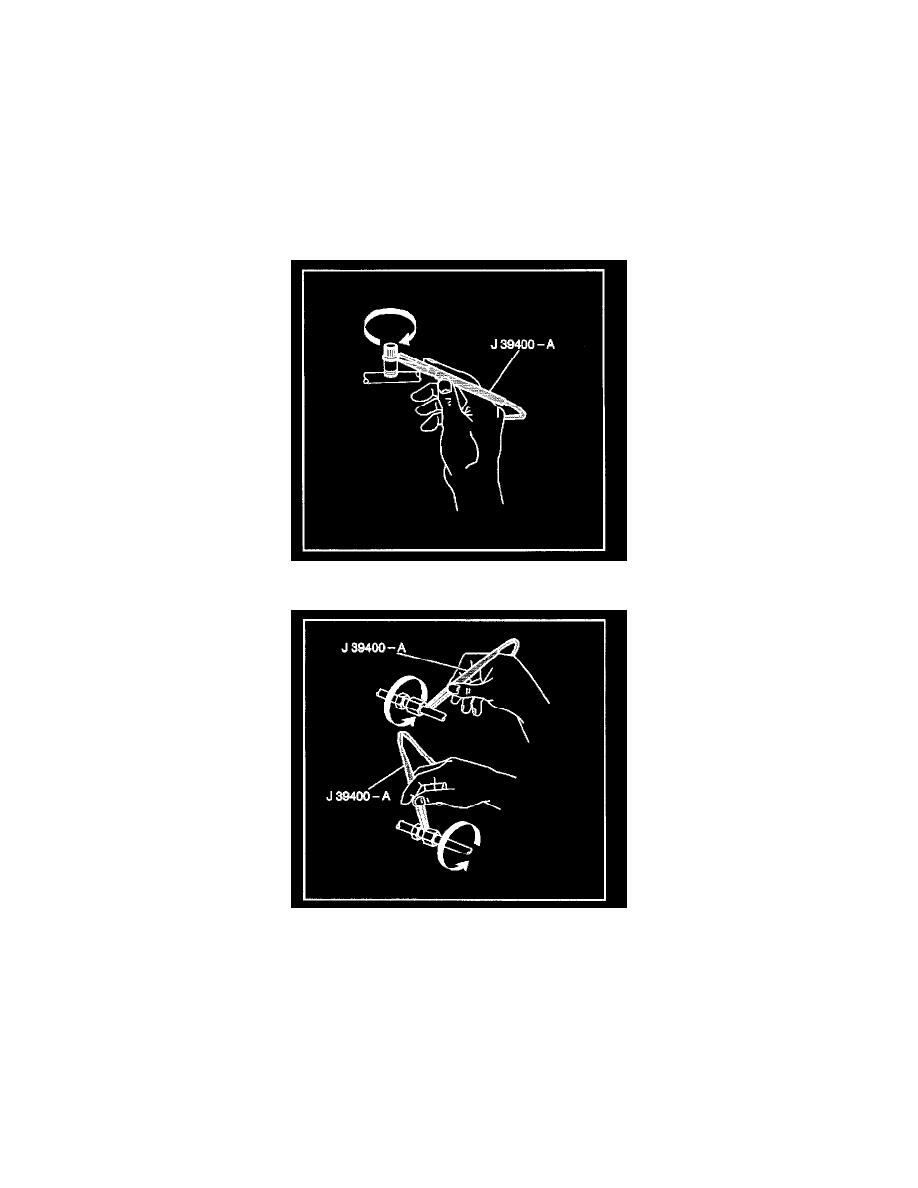Hombre S Regular Cab 4WD V6-4.3L (1999)

Hose/Line HVAC: Testing and Inspection
CAUTION: Do not operate the detector in a combustible atmosphere since its sensor operates at high temperature. Personal injury or damage to the
equipment may result
CAUTION: Take care to prevent personal injury which could occur due to touching a hot engine when testing. Tests should be done with the engine "
OFF" and as cool as possible. Do not operate the detector in a combustible atmosphere since its sensor operates at high temperature.
Perform a refrigerant leak test under the following conditions:
-
Whenever you suspect a leak
-
After a service operation that disturbs the components, lines or connections
There are several methods and special tools available for leak testing. Use care in all cases.
Electronic Leak Detector
Tools Required
J 39400-A Electronic Leak Detector
IMPORTANT: Electronic leak detectors are sensitive to the following liquids:
-
Windshield washing solutions
-
Solvents
-
Cleaners
-
Adhesives
Ensure that the surfaces are clean in order to prevent a false warning. Ensure that the surfaces are dry as ingestion of liquids will damage the detector.
The J 39400-A is useful for locating refrigerant leaks. The J 39400-A operates on a 12 volt DC and emits signal that increases in frequency as R-134a is
